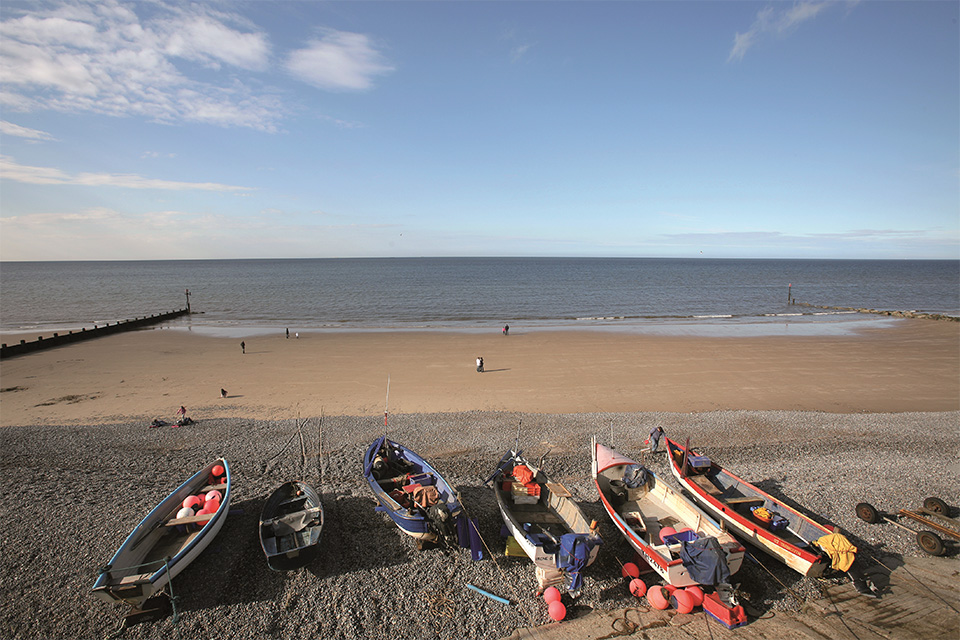Fishing industry
Although the number of fishing boats working from the beaches and ports of East Anglia has reduced over the last years, fishing is still highly important to the Norfolk economy, with significant catches of shell fish coming from the Greater Wash and the wider Southern North Sea.
The arrival of offshore wind farms in these waters has brought change to the fishing associations and societies whose members livelihoods depend on the sea, and it is incumbent upon the operators of these wind farms to establish a practical and caring working relationship with fishermen.
Now that the construction of the Dudgeon Offshore Wind Farm is complete, the wind farm site and the export cable corridor back to landfall are open for fishing. Few of the fishing boats operating from the beaches of towns such as Cromer and Sheringham go out as far the site of the wind farm which is 32km off the coast of Cromer.
However, the larger vessels operating out of the ports of Kings Lynn and Wells-next-the-Sea have worked the 55km² fishing grounds where Dudgeon’s 67 wind turbine generators are located for many generations.
The use of the large Esvagt Njord Service Operations Vessel (SOV) and its supporting crew transfer vessels (CTVs) in the Dudgeon Offshore Wind Farm has therefore required consultation and negotiation with the fishermen from these ports, particularly regarding the placement of their shanks of pots. Now that working procedures are in place, its constant presence in the wind farm site gives the fishermen the assurance of fast access to assistance in the event of any vessel emergency or personal injury or sickness.
Dudgeon Offshore Wind continues to provide the fishermen with the services of a highly experienced Fishing Liaison Officer (FLO),Alan Cooper, who can be contacted on 07760 791956.
